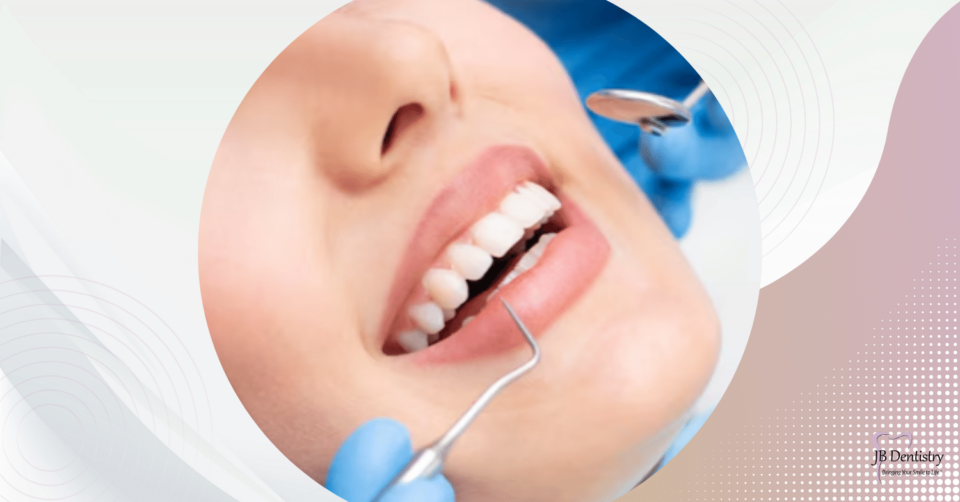For many people, a visit to the dentist falls squarely into the category of routine maintenance—like getting your oil changed or your tires rotated. You show up, get cleaned up, and walk out with minty-fresh confidence. But what if we told you there’s more happening in that chair than just plaque removal?
General dentists, often underestimated in the emotional realm, have a front-row seat to some of our most vulnerable, pivotal, and even joyful life moments. From pre-wedding whitening to the “I haven’t been here in five years” confessions, general dentistry touches lives in ways that go far beyond enamel.
Let’s explore the unexpected emotional role of the general dentist and how their support, trust, and quiet consistency help patients not just maintain oral health—but navigate life’s most significant changes.
How Can General Dentists Support Patients During Major Life Events?
Whether it’s prepping for a job interview, walking down the aisle, going through a divorce, or managing a health scare, people often find themselves in a dental chair at life’s most transitional points.
You’d be surprised how many people book a cleaning or cosmetic consultation right before a big moment—not because they have a cavity, but because they want to feel their best, look their best, or regain control in a time of chaos. And in those moments, general dentists become more than oral health providers. They become quiet companions in change.
Here’s how dentists often support patients through major life events:
- Pre-event confidence boosts: Whitening, bonding, veneers, or just a thorough cleaning before a wedding, reunion, or big presentation. The goal? A smile that radiates confidence.
- During health journeys: Patients undergoing cancer treatment, autoimmune disorders, or hormonal shifts often experience oral side effects. Dentists help manage pain, prevent complications, and offer reassurance during uncertain times.
- Post-divorce or breakup “resets”: It’s not uncommon for patients to say, “I just want to take care of myself again.” Dental care becomes part of a broader self-renewal.
- Grief and loss: During difficult times, oral hygiene may fall to the wayside. Dentists gently help patients get back on track without judgment.
Dentists may not always realize it, but their office can become a safe space, a checkpoint, or even a mini milestone in someone’s personal journey.
What Emotional Impact Does a Dental Visit Have Beyond Oral Health?
A dental visit doesn’t just affect your teeth—it influences your sense of identity, well-being, and confidence. When your mouth feels healthy and clean, it’s easier to smile, speak up, and present yourself to the world.
That alone carries a big emotional payoff. But it goes deeper.
Dental visits often carry subtle emotional benefits like:
- Validation and support: Especially when a patient opens up about anxiety, neglect, or health issues. Dentists who listen without judgment give patients a powerful emotional release.
- A sense of accomplishment: For people who’ve delayed care, showing up to the dentist can feel like a huge personal win.
- Comfort in consistency: In a world where everything changes fast, visiting the same dentist every six months can feel grounding. It’s one of the few healthcare relationships that spans decades, and that continuity matters.
- Restored confidence: Fixing a chipped tooth, replacing a missing one, or addressing bad breath issues can genuinely change how someone sees themselves—and how they engage socially.
It’s not unusual for patients to cry (yes, even happy tears) after cosmetic or restorative work. Why? Because oral health is deeply tied to emotional health—especially for people who have felt embarrassed about their teeth for years.
A general dentist doesn’t just maintain smiles—they help rebuild self-esteem with every gentle, skillful visit.
Why is Trust Important in the Patient-Dentist Relationship?
Let’s be real—trust is essential in any healthcare relationship. But with dentistry, it’s personal. A dentist is working in your mouth, millimeters away from your face, sometimes for long periods. That kind of proximity requires a deep level of trust—not just in their technical skill, but in their intentions, demeanor, and communication style.
Here’s why trust plays such a big role in general dentistry:
Vulnerability
Many patients arrive feeling nervous, embarrassed, or ashamed of their dental situation. A trustworthy dentist can disarm that fear with a warm tone, empathy, and encouragement.
Continuity
Patients who trust their dentist are more likely to stay consistent with cleanings, checkups, and follow-up treatments—leading to better long-term outcomes.
Mental health crossover
Anxiety, trauma, and self-worth often manifest in how someone approaches dental care. A compassionate dentist becomes an unexpected pillar of emotional safety, especially for patients with dental phobia or prior negative experiences.
Honest conversations
Trust leads to better communication. Patients feel more comfortable asking questions, expressing concerns, or even talking about related health or emotional issues. And in turn, dentists can tailor care with greater sensitivity.
Think about it: when you trust someone to look inside your mouth and help you feel better, that relationship isn’t just clinical. It’s personal. And that trust can be the gateway to healing—in more ways than one.
How Do General Dentists Help Reduce Anxiety During Routine Appointments?
It’s no secret that many people dread the dentist. But what separates a stressful visit from a calming one often comes down to how the dentist handles anxiety.
A skilled general dentist doesn’t just work on teeth—they work on comfort, on calm, and on connection. They’ve become part therapist, part coach, and part cheerleader for patients who need reassurance.
Here’s how dentists ease anxiety and build a safe, predictable environment:
- Creating a judgment-free zone: Many patients say, “I know it’s bad” the second they sit down. A dentist who reassures them with kindness instead of criticism sets the tone for trust.
- Explaining every step: For nervous patients, uncertainty is a major trigger. Walking them through the process with clear, simple language helps them feel in control.
- Offering choices: Whether it’s taking breaks, using numbing gel, or offering music or distractions—giving patients agency over their care makes a big difference.
- Reading the room: Great dentists are intuitive. They can sense when a patient is tense or overwhelmed, and they adjust accordingly—slowing down, checking in, or even pausing the procedure.
- Celebrating progress: Dentists who notice and acknowledge milestones—like coming back after years away or getting through a cleaning without anxiety—help patients reframe their experience as a success, not a struggle.
These small but powerful actions make a massive emotional difference. For someone who used to avoid the dentist at all costs, a gentle and encouraging provider can be the turning point in their health journey.
More Than Just a Smile
We don’t often think of dentists as emotional figures. But maybe we should.
Behind every polished molar and neatly filled cavity is a deeper story—of someone reclaiming their confidence, healing from pain, navigating a life event, or just showing up for themselves after years of hesitation. In those stories, general dentists play an unexpectedly profound role.
They’re there when people are at their most anxious and most hopeful. They listen. They restore. And they remind patients, often without saying much, that taking care of yourself is always worth it.
A Gentle Hand for Every Smile—and Every Chapter of Life
At Jaline Boccuzzi, DMD, PA // JBDentistry, we understand that dental care is never just about teeth. It’s about the person behind the smile. Whether you’re here for a routine cleaning or navigating a big life change, our team offers more than treatment—we offer support, trust, and compassion every step of the way.
Book your visit today and let us help you care for more than just your smile—because every appointment is also an opportunity to care for your confidence, your comfort, and your well-being.

